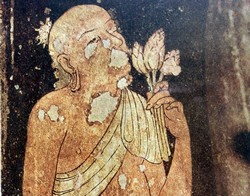The Buddhist concept of loka
Buddhism has been highly influential, yet is surrounded by vagueness and misunderstanding. Even its origins in time and space are known only approximately. The EU-funded project YOGALOKACNTXT (The concept of 'world' (Sattva-bhajana-loka) in Indian early Yogacara Buddhism: An intellectual history) aimed to clarify certain areas of uncertainty. The project studied Yogacara Buddhism, an Indian school of the 4th to 5th centuries CE. Project researchers posited that modern scholarship regarding the school has become decontextualised from its worldview. Hence, the study addressed the shortcomings via historical examination of ideas about a key concept. Sattva-bhajana-loka (abbreviated as loka) means the sentient and insentient external world. The project contextualised the concept within key texts and examined its literary construction. Preliminary findings indicated a pivotal role of the Yogacara understanding of language, which unites intersubjectivity with metaphor. The work explained how the school's arguments have been interpreted. The group produced a number of workshop and conference papers, and will eventually publish several journal articles and a book manuscript. The YOGALOKACNTXT project has helped to clarify current debates concerning the school's doctrines. The work also places Buddhism within a contemporary philosophical study of mind and language.



